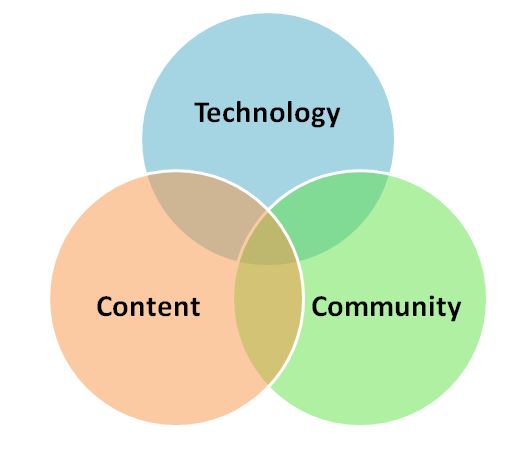Boolean Blocks: a repository of reusable search strategies
Why is Github so successful?
Some might argue it is because the activity of software development is enhanced through active participation in a community of like-minded individuals. By sharing ideas, code and templates, the collective skill and competence of its members is enriched. It’s a model other professions could do well to follow.
Indeed, some other professions already adopt a similar approach: recruiters, for example, share examples of ‘Boolean strings’ they have found useful when trying to source hard-to-find social profiles for roles they wish to fill. By contributing to sites like the Boolean Search Strings Repository and the Boolean String Bank, they open a mutually beneficial dialog with other individuals that can extend far beyond the initial exchange.
Similarly, information professionals exchange search strategies and templates for the purposes of peer review. By contributing to sites such as the PRESS forum, they promote the professionalism and competence of their membership.
But there are some crucial differences that set Github apart:
Its membership is open: Github welcomes contributions from all sections of the community, be they amateur, professional, hobbyist, or just plain curious
Its content is open: if users want to try something out, they don’t need to ask permission – they just download the code and follow the instructions. Reviewing other people’s code can be useful, but there is no substitute for running things yourself
It is actively maintained, with just enough infrastructure to get people started, and tooling to allow people to search for and discover items of interest
All the above means that Github has long since passed the tipping point of being merely ‘useful’ and has now grown to become a key resource within the community it serves.
So what does all this mean for the rest of us? Well, here at 2Dsearch we’ve long held the belief that solving the world’s most complex search problems is about more than just ‘technology’. Although the 2Dsearch app makes a unique contribution, it is only part of the solution. What’s missing is the content: the examples and templates that enable individuals to learn, share and enhance their own skills and competence.
So we’re pleased announce this week our first step along this journey: the Boolean Blocks repository. As its name suggests, Boolean Blocks is a repository of pre-built searches and templates. It is aimed primarily at recruitment and sourcing professionals, although it can also be used for lead generation, marketing, or any application where you need to find social profiles matching a specific brief.
The samples are examples of what’s known as ‘x-ray’ searches. X-ray searching is a way of using generic search engines like Google and Bing to find pages from specific websites, e.g. social profiles on LinkedIn, StackOverflow, Twitter, etc. At present, we have around 50 full searches (equivalent to complete ‘Boolean strings’).
But here’s the crucial difference: whereas other repositories are based solely on the concept of fully-formed Boolean strings, Boolean Blocks is all about providing a library of re-usable components or ‘Boolean Blocks’. So although there may be just 50 or so ‘complete’ searches, the number of searches you can create using these blocks is infinite. You can start with a block for job type, then import one for location, then another for skills, another for education, and so on. If you want to change the target of your search, you just change the x-ray filter. Or create your own! Like Lego, what you build is limited only by your imagination.
And the differences don’t stop there. In addition to infinite variation, your searches are also:
Directly executable in your search engine of choice - no need for error-prone cutting and pasting
Saved to the cloud in your own private repository, or sharable as executable links
Switchable between Google and Bing, so if your search uses platform-specific operators, the system will alert you and offer a workaround
Augmented by interactive search suggestions powered by AI and machine learning approaches
And of course, since the approach is based on a 2D visual canvas, it eliminates many of the common errors associated with traditional Boolean strings.
To keep things simple, all the content thus far has been created by us. But of course, in the longer term, repositories like this should really be a community initiative, owned and maintained by the community they serve. So in that spirit, what we offer here is merely a starter. What happens next is up to you.
In due course we’ll look at creating repositories for other professions, but for now we’d like to know what you think. If you find it useful, let us know. Conversely, if you think there is content missing or incorrect, let us know. Better still, if you think you can create better content, get in touch. We’d be more than happy to hand this over to better qualified individuals to expand and develop, so give it a try!

